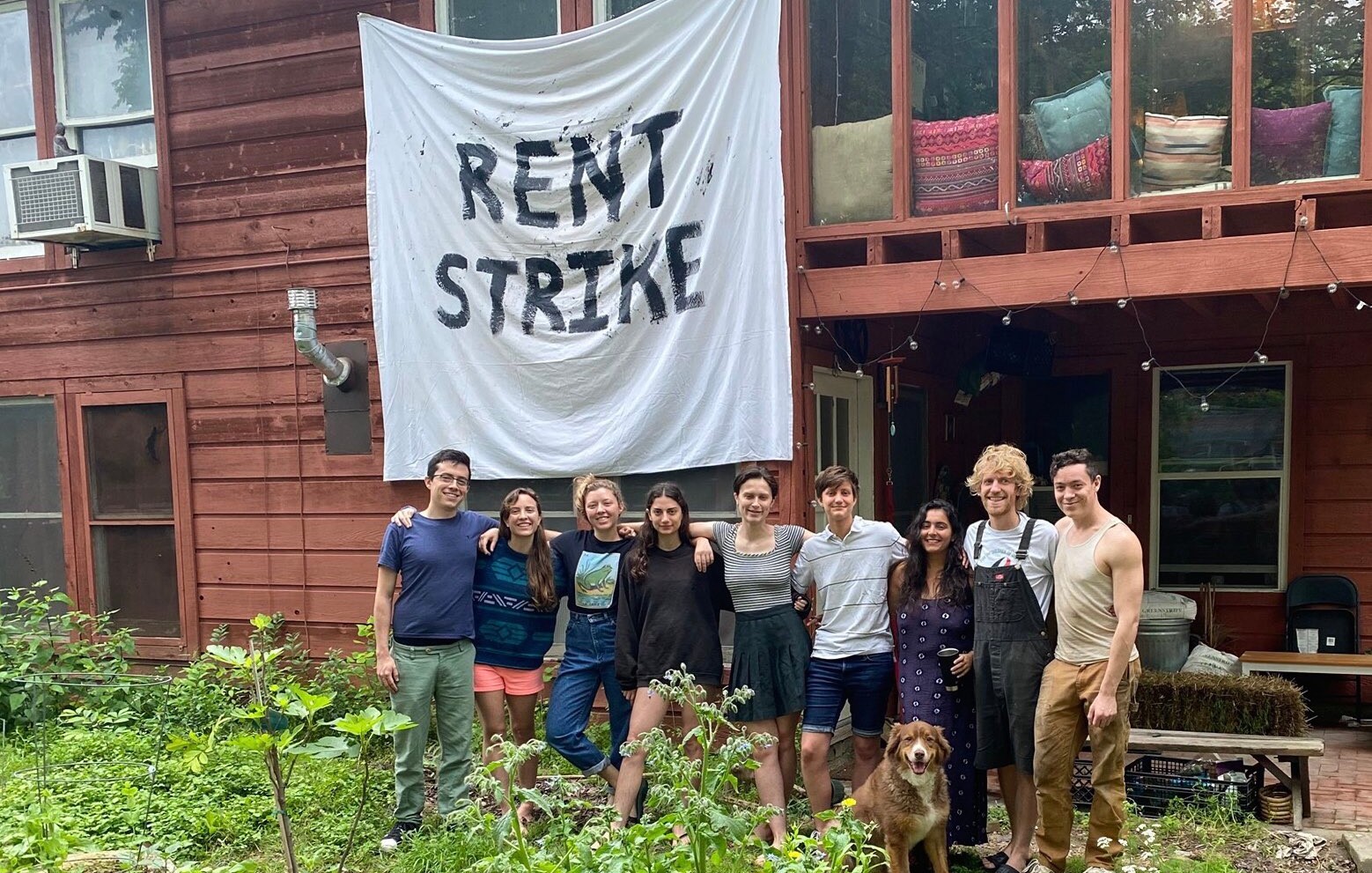Filed under: Action, Central, Housing

Report on launch of rent strike in Austin, Texas. Donate to strike fund here.
As millions of recently unemployed tenants across the country struggle today to pay rent, 11 residents of a building in Austin are going on rent strike and demanding that their landlord waive rent for the duration of the crisis. Over the past few weeks, some of the residents—who work as servers, gig contractors, and manual laborers—were laid off as the public health measures to contain the pandemic brought the economy to a standstill. When it became clear that many of the residents wouldn’t be able to pay rent, they decided to take collective action to ensure that no one faced this crisis alone.
This rent strike is part of a larger national movement, where an unprecedented number of tenants across the country demand rent be waived for the duration of the pandemic, as has been done in countries such as France.
“We are joining the rent strike because this is our home. While shelter-in-place is in effect, we shouldn’t have to choose between rent payments, and affording food and medicine, because we can’t. We care for one another. We want to stand in solidarity with all who can’t pay, to make it safer for everyone impacted,” said Jax, a (manual laborer) who has been living in the building for the past two years.
Meet the strikers of Concordia House. Many of them lost work and can’t get unemployment benefits. They are united to demand rent be waived and ensure no one faces this alone
Talk to your neighbors and support each other! Contact us for help organizing! #RentStrikeATX #CancelRent https://t.co/xWIsLYowjr pic.twitter.com/gNYAbvHGwP
— Rent Strike ATX ?️ (@RentStrikeATX) April 3, 2020
In Austin, a rent strike carries particular significance, where 52% of residents are renters. The median household income of the average renter ($41,979) is less than half that of the average homeowner ($89,265). Most renters in Austin are just 1-2 missed paychecks away from not being able to pay their rent. The rise in rents and housing precarity over the past few years has been a major factor in gentrification throughout the city, a crisis which has disproportionately impacted the city’s working Black, Latinx, and immigrant populations. Although the City has given renters a 60 day grace period to come up with rent, unemployed renters will continue to fall behind, accrue late fees, and face eviction—setting the stage for an intensified housing crisis once the public health crisis has ended.
Varios inquilinos de un complejo del este de Austin se unen a una campaña en respuesta a la pandemia del #COVIDー19.
Vea qué exigen y qué respuesta dio la administración esta tarde a las cinco. pic.twitter.com/5JC8c3RmYQ
— Olivia Martinez (@OliMartineztv) April 2, 2020
“Without a rent suspension, the reality is that thousands of people will not pay their rent. This will trigger an unprecedented series of mass evictions as people struggle to recover financially after the pandemic has passed. All the while, landlords, real estate investors, and private equity firms will continue to profit off of tenants.”, said Mukti, an organizer in the Rent Strike ATX campaign.
The Rent Strike ATX campaign has been working with tenants remotely, providing training, resources, consultation, and mutual aid to those impacted by the current health and economic crisis. They maintain an online strike declaration form in English (forms.gle/hTgNZcmar49vDH) and Spanish (forms.gle/sVjc5oL6eNCUEE), and manage a bilingual hotline at 512-200-7750 for tenants with questions about organizing.
“We were inspired to start this because after COVID-19 hit, we were unemployed and scared about bills and paying rent,” said Azul, also with Rent Strike ATX. “While a Rent Strike is just one tactic, we meet people where they are at by helping them organize with other tenants, providing mutual aid, and showing people that we can get through this together, not alone.”





